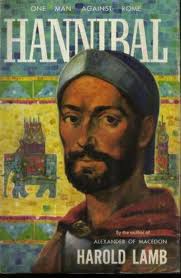Black Gate Interviews Howard Andrew Jones, Part Two
 In part one of Black Gate’s interview with Howard Andrew Jones we heard about one of Howard’s new novels, The Desert of Souls, and the joys and pitfalls of writing fantasy stories set in an historical milieu. In our second installment we talk about Howard’s reverence for the greatly under-appreciated historical adventure writer Harold Lamb, and the massive project Howard undertook to collect and republish Lamb’s fiction to preserve it for new audiences.
In part one of Black Gate’s interview with Howard Andrew Jones we heard about one of Howard’s new novels, The Desert of Souls, and the joys and pitfalls of writing fantasy stories set in an historical milieu. In our second installment we talk about Howard’s reverence for the greatly under-appreciated historical adventure writer Harold Lamb, and the massive project Howard undertook to collect and republish Lamb’s fiction to preserve it for new audiences.
All this talk about historical fiction naturally brings us around to Harold Lamb. When and where did you first encounter his work?
I first found him as a high school sophomore. I had to write a short history paper on a famous historical figure, and I happened to find Lamb’s biography of Hannibal on the library shelves. I loved that book. I had reread books in the past, but they were always novels or short story collections. Hannibal was the first non-fiction text I revisited again and again. Lamb presented what was almost a Shakespearean drama about a man blessed by the gods with brilliance and charisma, doomed never to achieve the one thing he truly fought for, which was the preservation of his homeland, the citystate of Carthage. A military genius, Hannibal won battles employing tactics that are still studied today, but no matter how clever he was, he could not win the war. He had luck in abundance, but it was almost a curse, for while he continued to survive, all those closest to him fell. When he returned home to Carthage after the war, he turned his intellect to reforming the state. He eliminated graft and corruption, and overhauled the elective system so that senators, appointed to lifetime power, had to be elected every two years by the people. Though beloved by the commoners, his sweeping changes drew only ire from the ruling elite, who lied to Rome, saying Hannibal was still plotting against them. He had to flee his city and wander for the rest of his life, taking employment with more and more distant places as a military adviser while the Romans expanded their holdings. Hunted to the end by Rome, he finally died by his own hand rather than permitting them to capture him alive.